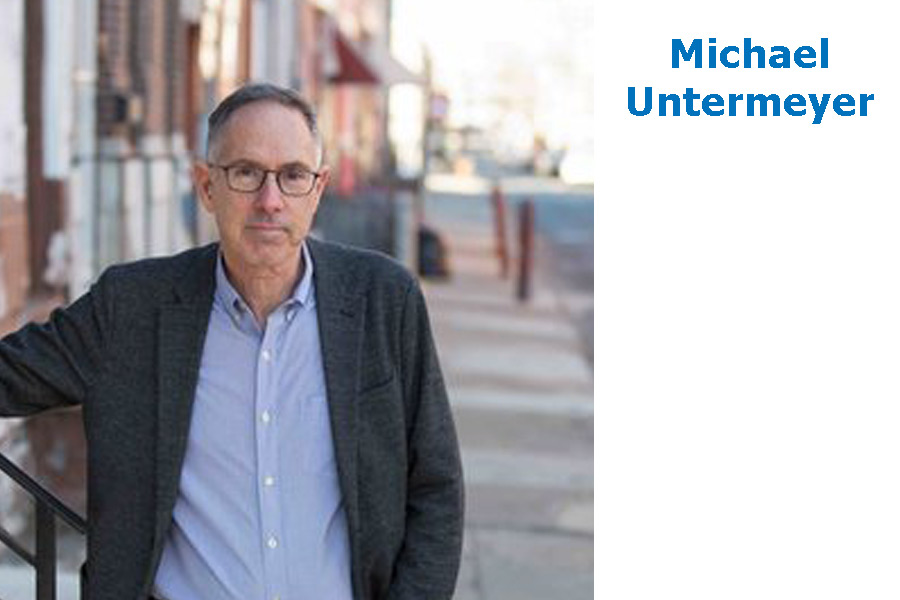Prior to his run for district attorney, Michael Untermeyer served positions in the District Attorney’s Office and the Philadelphia Office of the Attorney General, specializing in financial cases at the latter. Additionally, he volunteered at the American Red Cross and conducted pro-bono work for several organizations.
PGN: There have already been nine transgender women of color murdered across the nation this year. If elected, what will your office do to combat violence against transgender individuals in Philadelphia, specifically women of color?
MU: As district attorney, I want to be an advocate for fairness for every Philadelphian. This is a really serious concern. I think first, we have to have more training and education of police officers and prosecutors. These cases should be taken very seriously and they should be prosecuted to the fullest extent possible under the law.
PGN: If elected, will you assist PGN in our ongoing efforts to settle all open-records litigation for access to Nizah Morris records?
MU: Yes, I would assist PGN in their efforts to obtain to settle all open-records litigation for access to Nizah Morris records. I think the District Attorney’s Office needs to be more transparent. That means being more open about publishing statistics and information online, but it also means being more responsive to requests for information. I think that, as long as information doesn’t jeopardize an investigation, it should be released as quickly and comprehensively as possible.
PGN: How would you approach racial disparities in both the charging and sentencing processes?

MU: This is something that’s pervasive throughout the criminal-justice system. As an advocate for fairness and equity, I would change the way we do stop-and-frisk. It starts in the street. Then you have the charging. Sometimes charging is racially affected and racism shouldn’t play a part in it. When a case comes in the District Attorney’s Office, a police officer prepares the charges. The district attorney has the ability to approve or decline a particular charge. [If] I see cases motivated not because of criminality but because of someone’s predisposition, I can simply decline the case from the get-go or filter the case so that the real charge is placed against somebody. The next step is when bail is set. The bail system we have now is discriminatory [both] racially and economically. The third thing is when a case simply is tried. One’s race should have no impact on how a case is handled during the trial phase. As district attorney, I want to fight for fairness.
PGN: What is your position on the current immigration crackdown being led by the Trump administration? What role does the D.A.’s Office play in this process?
MU: I support the mayor’s position in Philadelphia being a sanctuary city. I think low-level crimes [involving] individuals regardless of their status in this country should be treated like everyone else and be given a second chance.
PGN: In light of the bribery charges facing our current district attorney, what would you do to root out corruption within the office?
MU: As district attorney, I will not take gifts under any circumstances. In terms of possible corruption by other individuals in the office, I think all cases and claims made of corruption have to be investigated and prosecuted.
PGN: What is your position on cash bail?
MU: Cash bail, very simply, should be eliminated. Those with limited means suffer the consequences simply for not having enough money. I want a system that is not based on money whatsoever. If Joe Smith is charged with a crime, we will look at his criminal history, his risk of flight and his risk of danger for the community. Based on those factors, we will simply make a decision whether he’s kept in custody or released conditionally until the time of his or her trial. We have 1,000 people in jail in Philadelphia where their bail is less than $1,000. For half of the people in the city, it takes an average of three days for them to come up with the funds to make even $500 of bail. It’s an unfair system and it’s unacceptable.
PGN: What is your position on the death penalty?
MU: As a policy, I do not believe in the death penalty. I don’t think it acts as a deterrent. I would say under extraordinary circumstances, I would consider it [such as the Charleston church shootings or the bombing of the Boston Marathon].
PGN: Do you think that police violence, specifically against communities of color, is an issue in Philadelphia? If so, what would you do to combat it?
MU: I do think it’s an issue. There should be a separate unit, not only administratively but geographically and physically, where both the investigators and the prosecutors do not interact with other office staff. The people in the separate unit will be charged with investigating and prosecuting any crimes involving police abuse.
PGN: The D.A.’s Office has not had an LGBT liaison since the beginning of 2015. Is this a position you would resurrect?
MU: More than having a liaison, I would like to assign a district attorney specifically for the LGBTQ community. There are 300 lawyers in this office and I believe in having a community-based prosecutor’s office, meaning that every lawyer in this office should be assigned to a specific community in the neighborhood. Part of his or her job will be to interact with their community on a consistent, weekly basis. In this particular case, I think the individual should be a member of the LGBTQ community and that will be part of his or her job.
PGN: Do you support the statewide LGBT nondiscrimination bill? If yes, what would you do to advance it?
MU: Yes. In the District Attorney’s Office, I would try to hire a staff that is reflective of the community that we’re in.
PGN: Do you support the statewide hate-crimes bill? If yes, what would you do to advance this measure?
MU: Yes, I definitely support that. If it involves criminal acts, I can certainly make the enforcement and the prosecution of those acts a priority in the office. I also think we have to have advocacy for the LGBT community and as the Philadelphia district attorney, I would have somebody on my staff participate in those lobbying efforts.
PGN: Until an LGBT-inclusive hate-crimes law is adopted, what do you think can be done to better track and report hate crimes motivated by a victim’s sexual orientation and/or gender identity?
MU: The District Attorney’s Office has to be much more transparent. You have to be able to see what’s going on. The statistics have to be reported and whatever goes on in that office should be open to the public.
PGN: Why should the LGBT community vote for you?
MU: Most importantly, I am a strong and unwavering ally of the LGBT community. There is a significant LGBT community in the city and that community should be reflected in the makeup of the District Attorney’s Office. For too long now, the District Attorney’s Office really hasn’t been listening to the people of Philadelphia. We simply need a district attorney that will [be] an advocate for fairness and public safety for every Philadelphian. I also want to stress the fact that I think I will be truly independent in the work that I do in the District Attorney’s Office. This isn’t a stepping stone for me to another office. I really want to serve the people of Philadelphia in this office and that’s why I’m running.
For more information about Michael Untermeyer, visit www.michaelforphiladelphia.com.
